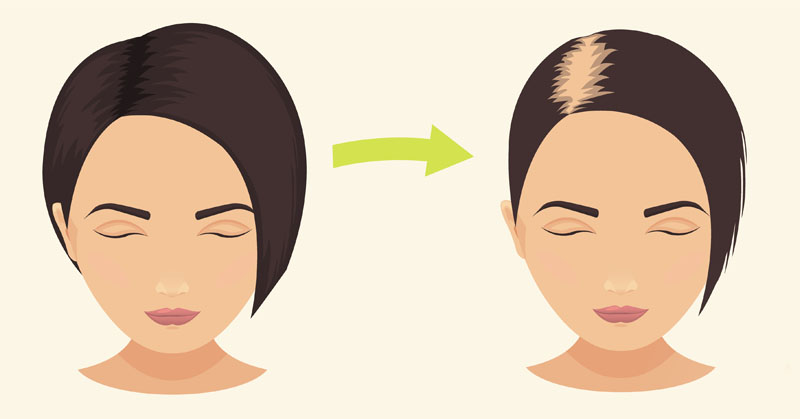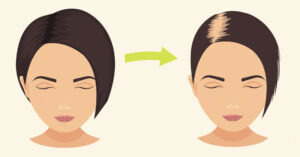Hair Fall Understanding and Com-batting
Hair fall can be distressing, you’re a teenager experiencing natural ebb and flow of hormonal changes, a new mother grappling with post-pregnancy effects, professional juggling stress, or simply someone who takes pride in their locks. While a certain amount of shedding is average, excessive hair loss can be a red flag for an underlying health issue or a call for a change in your lifestyle or hair care regimen. This post aims to empower both men and women to understand the causes of hair fall and adopt prevention strategies.
 Nutritional Deficiencies and Their Impact on Hair Health
Nutritional Deficiencies and Their Impact on Hair Health
Iron, protein, biotin, and other vitamins and minerals are essential for hair health. A well-balanced diet rich in these nutrients and incorporating supplements under medical guidance can support healthy hair growth.
Hair Fall in Teenage Years: Understanding the Hormonal Roller coaster
Teenage years come with a whirlwind of physical changes; for many, an unexpected hurdle is the increase in hair fall. This spike in shedding is primarily due to hormonal fluctuations that accompany puberty. Androgen, a group of hormones including testosterone, often surge during this time, impacting the hair’s growth cycle. Understanding this natural process can alleviate teen anxiety regarding hair fall.
- The Role of DHT in Teenage Hair Loss
One of the most potent androgen is dihydro testosterone (DHT), which shrinks hair follicles, shortening the anagen growth phase and prolonging the telegenic resting phase. This phenomenon, known as androgenic alopecia or male pattern baldness, is relatively common and can appear in teenage males.
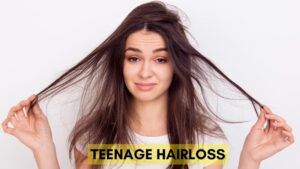
- Hair Fall in Teenage Girls
While teenage hair fall is more frequently discussed among boys, girls also encounter hormonal ups and downs that can lead to shedding. The menstrual cycle, hormonal contraceptives, and conditions like polycystic ovary syndrome (PCOS) can trigger hair loss in girls and young women.
Post-Miscarriage Hair Fall: A Lesser-Known Aftermath
For women who have experienced a miscarriage, the emotional toll is often accompanied by physical changes, including post-pregnancy hair loss. Termed telegenic effluvium, this condition results in significant shedding 2-3 months after the trauma, with the majority of women noticing the effects around the time when they would have given birth.
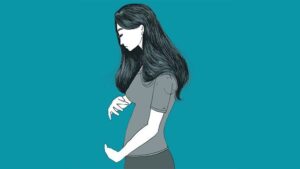
- Coping with Hair Fall Post-Miscarriage
It is understood that post-miscarriage hair fall is temporary, and part of the body’s natural reset can provide solace. It’s crucial to employ self-care and stress management techniques to aid healing. Additionally, speaking with a healthcare professional can reassure you about the normality of your experience.
- How to Stop Hair Fall: Proactive and Preventative Measures
Prevention is better than cure, and this age-old adage certainly holds regarding hair fall. Adopting good hair care practices, maintaining a balanced diet, and addressing underlying health conditions are some proactive strategies to curtail hair loss.
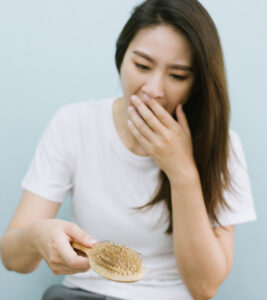 Hair Care Tips to Minimize Hair Fall
Hair Care Tips to Minimize Hair Fall
Gentle hair care prevents breakage and falls. Use a wide-toothed comb to detangle wet hair, steer clear of excessive heat styling, and opt for hair-friendly elastics. Regular trims help eliminate split ends that can travel up the hair shaft, weakening it over time.
- Lifestyle Modifications for Hair Fall Management
Stress and inadequate sleep can wreak havoc on the body, leading to hair loss. Techniques like meditation, exercise, and ensuring sufficient rest can help manage stress levels and prevent hair fall. Excessive smoking and alcohol consumption can also contribute to hair fall and should be moderated or eliminated.
- Unwrapping the Power of Curry Leaves for Hair Fall
Curry leaves, a common ingredient in Indian cooking, are praised for their medicinal properties, including their ability to combat hair fall. They are rich in antioxidants and proteins that help strengthen the hair follicles and moisturize the scalp, reducing hair fall and healthier hair.
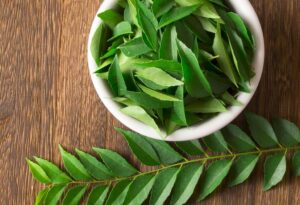
- How to Use Curry Leaves for Hair Fall
There are numerous ways to incorporate curry leaves into your hair care routine. You can infuse them into oils, blend them into a hair mask with yoghurt or coconut milk, or simmer them with water for a nourishing rinse.
- The Evidence for Curry Leaves in Hair Fall Treatment
Studies have shown that curry leaves can improve hair health and may reduce hair fall when used regularly. While more research is needed to substantiate these claims, the anecdotal and cultural evidence is strong.
Dandruff and its Link to Hair Fall
Dandruff is a common scalp condition characterized by flaking and itching, often resulting from a fungus called Malassezia. Beyond the social discomfort it can cause, severe dandruff can contribute to hair fall by exacerbating underlying scalp conditions.
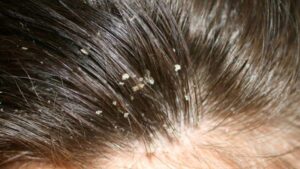
- Choosing the Right Anti-Dandruff Treatment
Anti-dandruff shampoos containing active ingredients like ketoconazole, selenium sulfide, or zinc pyrithione can effectively manage dandruff. To avoid over-drying the scalp, use these shampoos per medical or label directions.
- Maintaining a Dandruff Prevention Routine
Regular scalp massages, thorough rinsing of hair care products, and a balanced diet can help prevent dandruff, reducing the risk of associated hair fall.
Conclusion
Understanding the causes of hair fall and taking proactive steps to address them is crucial for maintaining a healthy head of hair. Adopting a holistic approach that encompasses good hair care, a balanced diet, and stress management can significantly reduce hair fall and promote regrowth. Remember, each individual’s experience with hair fall is unique, and consulting with a healthcare professional can provide personalized guidance for your specific needs. Whether you’re grappling with hair fall in your teenage years, after a miscarriage, or as a part of your everyday life, taking charge of your hair health is a tangible and empowering step toward overall well-being. So, arm yourself with knowledge and take action to conquer hair fall and embrace healthy, luscious looks.
If you’re interested in exploring more in-depth discussions on hair health, don’t miss our detailed article on https://mybloggingplace.com/

